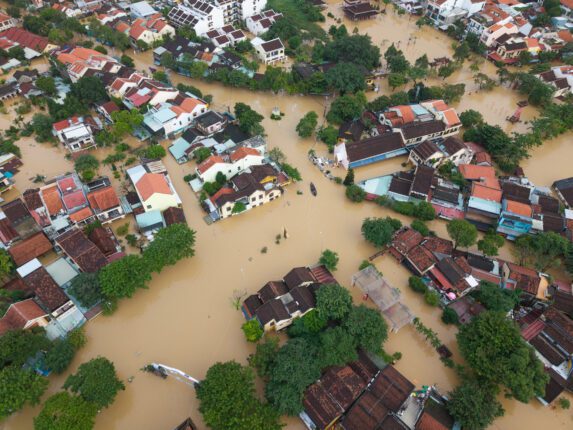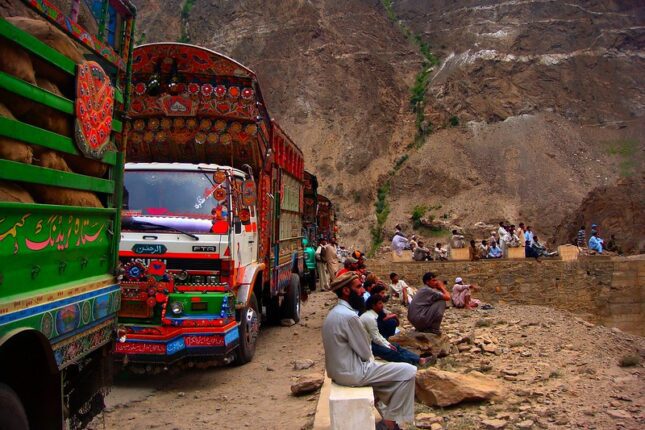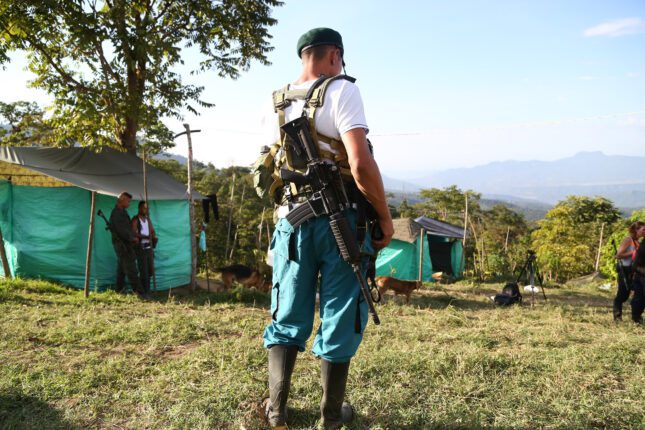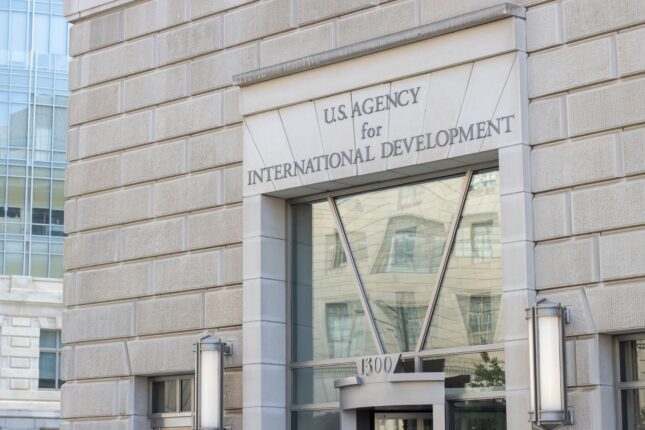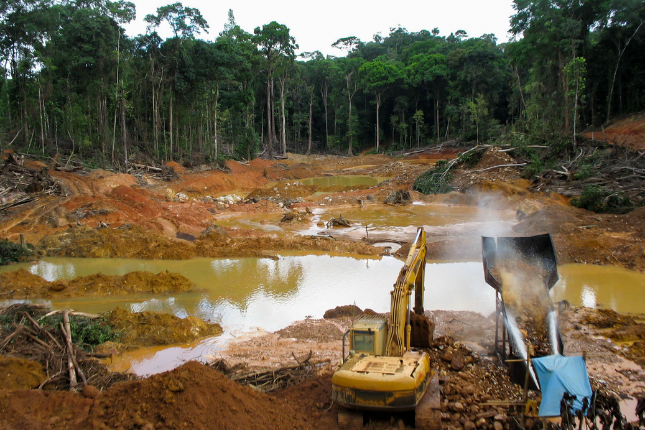-
Environmental Security Weekly Watch: December 8-12, 2025
›A window into what we’re reading at the Stimson Center’s Environmental Security Program
Race for Copper Damages Protected Region in Colombia (Mongabay)
As Colombia looks to meet the growing demand for strategic minerals, activists working in the department of Choco allege that the country’s only industrial copper mine is harming both the environment and a local community. The El Roble copper mine has operated since 1990 at the base of a valley crossed by the Atrato River, but its acquisition by Canadian multinational Atico Mining in 2013 has meant that daily production has doubled from 400 to 1,000 metric tons over the past 12 years. El Roble also lacks the environmental license required by Colombia’s Mining Code, and continues to operate under a less stringent 1987 environmental management plan, which activists say omits required environmental impact studies.
-
Shall We Ask ChatGPT About Water During Negotiation?
›November 17, 2025 // By Kyungmee Kim -
Environmental Security Weekly Watch: November 10-14, 2025
›A window into what we’re reading at the Stimson Center’s Environmental Security Program
Rising Food Insecurity is Driving Instability (Foreign Affairs)
Since 2020, the number of people facing acute hunger and chronic food insecurity has increased 130% above existing levels. And supply is not the issue. At present, the world produces enough food to feed nearly 10 billion people, yet there are 720 million people who are food insecure and a further 319 million face acute hunger. Today’s hunger is driven instead by barriers to access.
-
China’s Belt and Road in Pakistan: What CPEC Leaves Behind
›Launched in 2013, China’s Belt and Road Initiative (BRI) has drawn wide global attention, with scholars and policymakers examining its geopolitical and economic implications. Much less explored, however, are the subnational impacts of BRI in participating countries. The China Pakistan Economic Corridor (CPEC), adopted as Pakistan’s flagship BRI project in 2015, offers a case in point.
-
Rebel Governance in an Age of Climate Change
›July 30, 2025 // By Elisabeth Gilmore, Kathleen Cunningham, Leonardo Gentil-Fernandes, Reyko Huang, Danielle F. Jung & Cyanne E. Loyle
In Myanmar’s resource-rich Kachin State, deforestation linked to illegal logging and mining has surged over the past decade. While the national government struggles to assert control, the Kachin Independence Organization (KIO)—a political organization seeking autonomy for Kachin State in Myanmar—has also stepped in to regulate land use, restrict timber harvests, and manage permits. These activities serve to conserve local ecosystems and extract revenue. KIO’s environmental governance is strategic, aiming to bolster civilian support and consolidate territorial control. It is also shaping how communities cope and adapt to climate change.
-
Plotting the Future of U.S. Foreign Aid
›
When Secretary of State Marco Rubio formally declared the “era” of USAID over on March 28, 2025, it represented an extraordinary sea change for US foreign aid deployed over the past six decades.
Yet the world has changed dramatically since the U.S. Agency for International Development (USAID) was established by the Foreign Assistance Act of 1961 in the middle of the Cold War. So, there is every reason to thoughtfully consider what foreign aid should look like today as we navigate an era of Great Power Competition (GPC).
-
Environmental Peacebuilding: The Year in Review and the Year Ahead
›
As 2025 marches into its third month, the governance challenges that accompany rising demand for natural resources are not only on the front burner—they are proliferating—and becoming entangled with the drivers of conflict and cooperation.
The heated competition for resources has bubbled up in a proposed billion-dollar deal for Ukrainian minerals now making global headlines. The view that critical minerals like lithium, manganese, and others could become bargaining chips in potential peace talks demonstrates how central they’ve become to global competition—and to the economic and political future of countries around the world.
-
ECSP Weekly Watch | March 10 – 14
›
A window into what we’re reading at the Wilson Center’s Environmental Change and Security Program
Congo Takes Apple to Court (Foreign Policy)
The Democratic Republic of the Congo has filed criminal lawsuits against Apple subsidiaries in France and Belgium, alleging that the company profits from smuggled conflict minerals laundered through Rwanda. This legal action follows the seizure of key mining areas by M23 rebels, which has further fueled a conflict that already has killed over 8,500 people. Apple denies the claims, stating that it ordered its suppliers to suspend sourcing from Congo and Rwanda.
Showing posts from category foreign policy.



